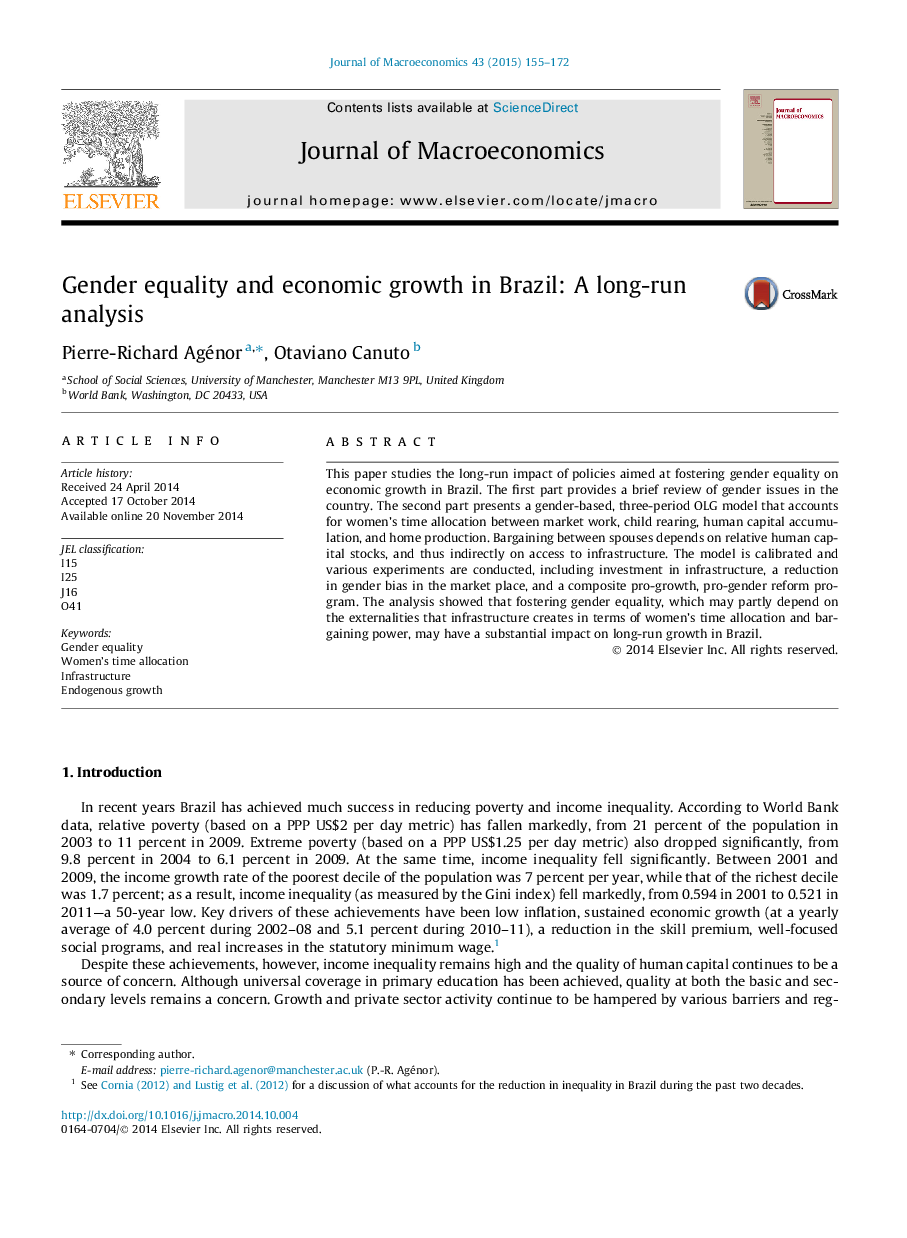| Article ID | Journal | Published Year | Pages | File Type |
|---|---|---|---|---|
| 965307 | Journal of Macroeconomics | 2015 | 18 Pages |
Abstract
This paper studies the long-run impact of policies aimed at fostering gender equality on economic growth in Brazil. The first part provides a brief review of gender issues in the country. The second part presents a gender-based, three-period OLG model that accounts for women's time allocation between market work, child rearing, human capital accumulation, and home production. Bargaining between spouses depends on relative human capital stocks, and thus indirectly on access to infrastructure. The model is calibrated and various experiments are conducted, including investment in infrastructure, a reduction in gender bias in the market place, and a composite pro-growth, pro-gender reform program. The analysis showed that fostering gender equality, which may partly depend on the externalities that infrastructure creates in terms of women's time allocation and bargaining power, may have a substantial impact on long-run growth in Brazil.
Related Topics
Social Sciences and Humanities
Economics, Econometrics and Finance
Economics and Econometrics
Authors
Pierre-Richard Agénor, Otaviano Canuto,
